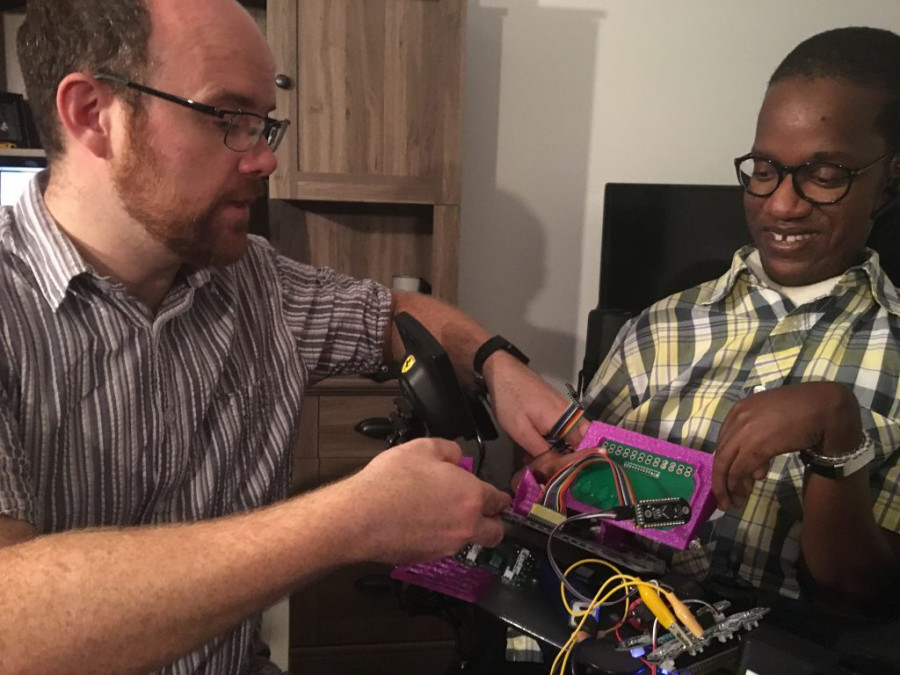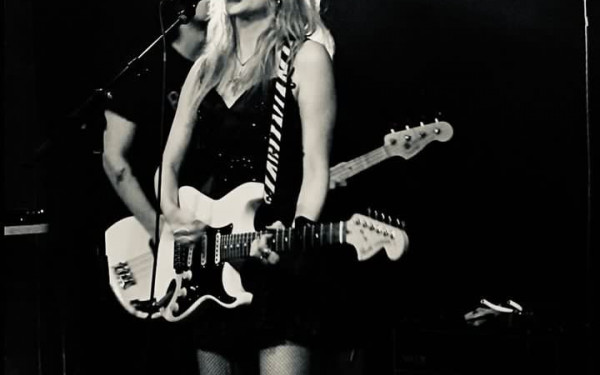Gift Tshuma: Empowerment Through Music
Montreal Musician and Activist Makes it Possible for People With Disabilities to Play Instruments
Named the Quebec Black changemaker by the CBC, Gift Tshuma is making his mark as a strong activist for the disabled community, and pushing social norms with his newest project: Blurring the Boundaries.
Tshuma, a Montreal based artist born in Zimbabwe, found a way to incorporate his passions for music and activism to make music production more accessible for people with disabilities. He balances being the leader of a gospel group and advocating for the disabled community. His activism career started roughly 15 years ago when he began to be very disappointed with the lack of accessibility of public transit in Montreal.
He then started a disability rights group that advocated for better accessibility within the public transit system. This early advocacy evolved into Thsuma’s current project called Blurring the Boundaries. Founded alongside his business partner Charles Mathews, the organization allows disabled individuals to play different musical instruments on any device, be it a phone, tablet or computer.
Blurring the Boundaries, a project part of the New Conversations program funded by the British Council, allows producers and performers to collaborate in making music accessible to all. They offer a wide variety of events to attend, such as workshops on sound ideas and instrument development. Although it has gained lots of popularity in the United Kingdom, Tshuma hopes to share his passion around the world.
Through this organization Tshuma wanted to give a chance to people with disabilities to express their artistic side. He wanted to give them a chance that hadn’t been available before.
The Link sat down with Thsuma to discuss his goals for Blurring the Boundaries, accessibility in Canada, and the power of unity.
Answers have been edited for clarity.
Q: How do you feel about the accommodations for people with disabilities in Zimbabwe compared to Canada
A: I feel the same way as I feel about the accessibility here. It's frustrating. Resources were not easily available for folks with disabilities unless you had money. In my case, I was fortunate enough to afford [them], but at the same time, not all my needs were being met. Even here, in Canada, even though there are more resources for folks with disabilities, it’s still quite a challenge considering it to be a developed country. There are still gaps that need to be addressed around the educational system, around employment—the list just goes on.
Q : Can you tell me more about how you incorporate activism with your music?
A: I’m a musician, and a singer. I do my music and direct a gospel group, and as a branch off, I work in digital music and instrument development. My business partner, Charles Mathews and I joined forces to create Blurring the Boundaries, [which] advocates for musical expression for people with disabilities who might not necessarily have an accessible avenue [readily available for them] to express their artistic side. He’s a developer and a programmer and […] we’ve been developing musical instruments [...] to allow for folks with different disabilities to play digital instruments straight from their device.
Q: How has your organization evolved over the years?
A: We’re relatively new. [...] For the past two years, we’ve been in the experimental phase where we are testing digital instruments [...] and we’ve been getting a lot of good feedback to help us improve the instruments we are creating. We can’t say that our instruments are at a point where they are 100 per cent perfect, but they are on the way to becoming accessible.
Q : How do you feel about the impact you’re having on the disabled community thanks to this project?
A: It’s exciting to be a part of this because it’s something I wanted to have access to when I was younger. Being able to provide and advocate for folks who look like me is exciting. It’s not a one man show, it’s a communal effort to make this possible.
Q: Is there something specific that strikes you about the way Canadian society deals with disability issues?
A: Generally speaking, society is at a point where we are becoming more aware about inclusivity and about access issues, and to me, that’s exciting. It’s better than where we were, 15 or 200 years ago. You’re starting to hear more about mental health, for example. You’re starting to hear more about inclusive spaces for gender non-conforming folks or racialized folks and it’s exciting that these conversations are happening in the open and that these organizations and institutions are now planning a commitment to address those issues.
Q: If you could give out a message to this generation, and more specifically, the disabled community, what would it be?
A: Don’t be afraid to fight for what you believe is right. I understand that fighting and advocating for your needs can be very exhausting. It can be very time-consuming, so collaboration is key when it comes to creating change of any kind. There is power in unity. There is power in collaboration, so don't fight alone.






_600_375_90_s_c1.jpg)
_600_375_90_s_c1.jpg)